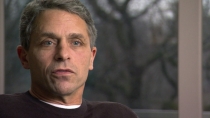My Transformation From High School Drop Out To Surgeon
The question “how I did it” has come up in my mind many times. Someone who just learned of my past and the obstacles that I had to overcome can trigger it. Many times though, I can just be reflecting back over some aspect of my life, and for a fleeting moment, I am stunned by my success and by the things I went through to achieve that success.
Previously my answer has simply been “I just did it — I worked hard and got where I needed to go.” Until the filming of the This Emotional Life (premiering January 4-6 on PBS), I really did view it in such simple terms. However, the PBS special forced me to dig deeper and think extensively about the details of my past and about the key elements that helped and forced me to change. From this reflection I have concluded that there were four important themes that propelled me towards changing my behavior and my life.
The first was general self-awareness. When I was 17 it became clear that I needed to go down a different path. I understood that being an uneducated cigarette smoking, drug taking, high school dropout with a criminal record with no skills were all a recipe for future failure. I vividly recall the day when I realized that I had three options: stay the current course and likely end up in prison, avoid trouble and pursue an unskilled lifelong career as perhaps a janitor, or go to school and get an education. I recognized that the only rational choice was to pursue an education. That was the easy part. Doing it, like many things, was the really hard part.
The second theme was other people. Along the way in my journey to self-improvement, I met many people who, inexplicably, took an interest in me. I believe their willingness to help me, mentor me, and give encouragement was in large part due to their general kindness, which I now know most people have. But their kindness towards me was brought out, in part I suspect, by my demonstration of my good intentions and my interest in changing. I have found that so many people want to help others, and that when someone is genuinely interested in changing themselves, people are willing and delighted to give their time and energy. Mind you, I am not talking about major efforts, but instead small acts of kindness and guidance that can have such a huge impact on someone who has not seen this behavior displayed toward them before. It was so very greatly encouraging to have anyone, through his or her simple actions, affirm that I had worth and value.
The third theme was action. When someone took the time to show me something or point me in the right direction, I took the opportunity with intensity and vigor. I remember when an employee at the furniture store where I worked offered to go over my paper for an English class at the community college I attended (she had previously been an English teacher). To this day I recall the entire time I spent reviewing the paper with her and the details of what I learned from her mentorship, including the meaning of the word quixotic. I remember Stacy Roback , a surgeon to whom I delivered furniture, inviting me to simply hang out at his house on a Saturday afternoon. Even though I felt so out of place and stupid, I did go and because of this I developed a tremendous relationship with him and his family. I remember when Stacy suggested I take some vocational interest tests at the University to help me decide what career to pursue; I went the next day, signed up and the tests said I should be a doctor, and now I am a doctor.
The point is, opportunity arrives through these small windows that at first may not appear to be opportunities. You must actively keep looking in all the small windows with eagerness, even if you don’t see anything in many of them. As Cus D’Amato, Mike Tyson’s early trainer, and the man who rescued him from the ghetto, said: “A boy comes to me with a spark of interest, I feed the spark and it becomes a flame, I feed the flame and it becomes a fire, I feed the fire and it becomes a roaring blaze. That is the power of an individual to change someone’s life, if the spark is there.”
Finally, when you have such low self-esteem as I did in the beginning of my climb out of my past, it is so very easy to become discouraged by even the simplest of failures, as they seem so significant at the time. A poor grade in school, not getting a job, not feeling like you fit in, the list goes on. As hard as it was, and believe me it was hard, I always got back in the game, usually after one to three days of self incrimination, feeling sorry for myself, and just generally feeling inadequate and like I would never amount to anything.
It is important to not worry about failing. Note that I did not say afraid to fail. Again Cus D’Amato said, “The hero and the coward both feel the same thing, but the hero uses his fear, projects it onto his opponent, while the coward runs. It’s the same thing, fear, but it’s what you do with it that matters.” To this day, the fear of failure is still there, but my willingness to take the risk is the same. I just move on faster now.

Michael Baime, M.D. Bio
Michael overcame a very difficult childhood to become a successful surgeon.
Learn More